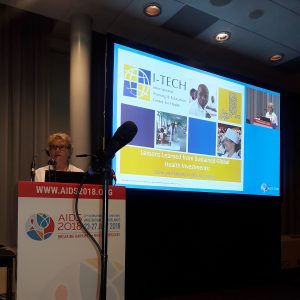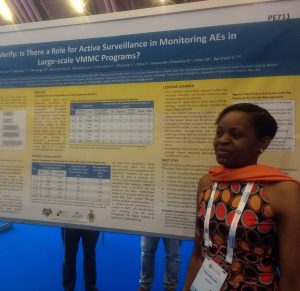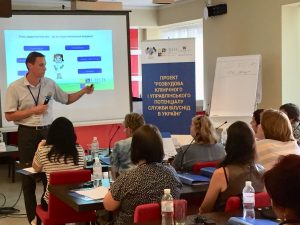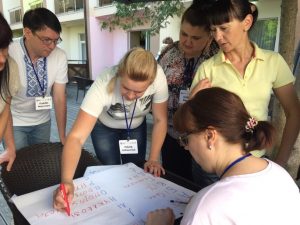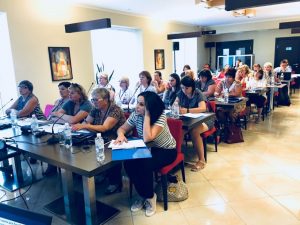In honor of National Women’s Day in South Africa on 9 August, members of the International Training and Education Center for Health (I-TECH) team in South Africa organized a personal donation to faith-based organization Participate, Empower, Navigate (PEN), which provides services and support to at-risk populations such as the homeless, sex workers, and orphaned children.

“We were interested in supporting a program that works with women and we were introduced to the Ladies Arise program at PEN,” explains Lebogang Ntswane, I-TECH South Africa program manager.
Ladies Arise is a community support program for homeless women provided through PEN. Many of the women seeking support from the program have been forced into sex work to make an income. Through Ladies Arise, the women can access a drop-in center where they can use the facilities to shower, do laundry, and eat a meal.
The drop-in center also coordinates activities for the women like art classes, crochet, and Bible study. In addition to the fun and sometimes income-generating programs, Ladies Arise provides the women with social and mental health services, such as counseling with PEN’s volunteer social worker.
PEN is a donor-funded non-profit organization and relies on donations of all kinds to continue offering much-needed services in Pretoria. In addition to fundraising events and a major supermarket that donates food to the center on a monthly basis, PEN also relies on donations of clothing, toiletries, and shoes from the community.
“One of our colleagues had seen the idea of filling handbags with toiletries in a magazine,” says Ntswane, “and we decided it would be a great way to commemorate National Women’s Day and assist the women in our community.”
I-TECH South Africa staffers donated the bags filled with new toiletries, as well as clothing and new packs of underwear, a particularly high-need item at the center.
In addition to donations, I-TECH team members had the chance to sit down with recipients over breakfast to learn about their stories. “One woman reported that she met with the center coordinator and was introduced to the Ladies Arise program. She is now attending a cosmetology course,” says Ntswane. “We are so glad that we found this organization, and we look forward to continuing our personal support of PEN whenever possible.”
